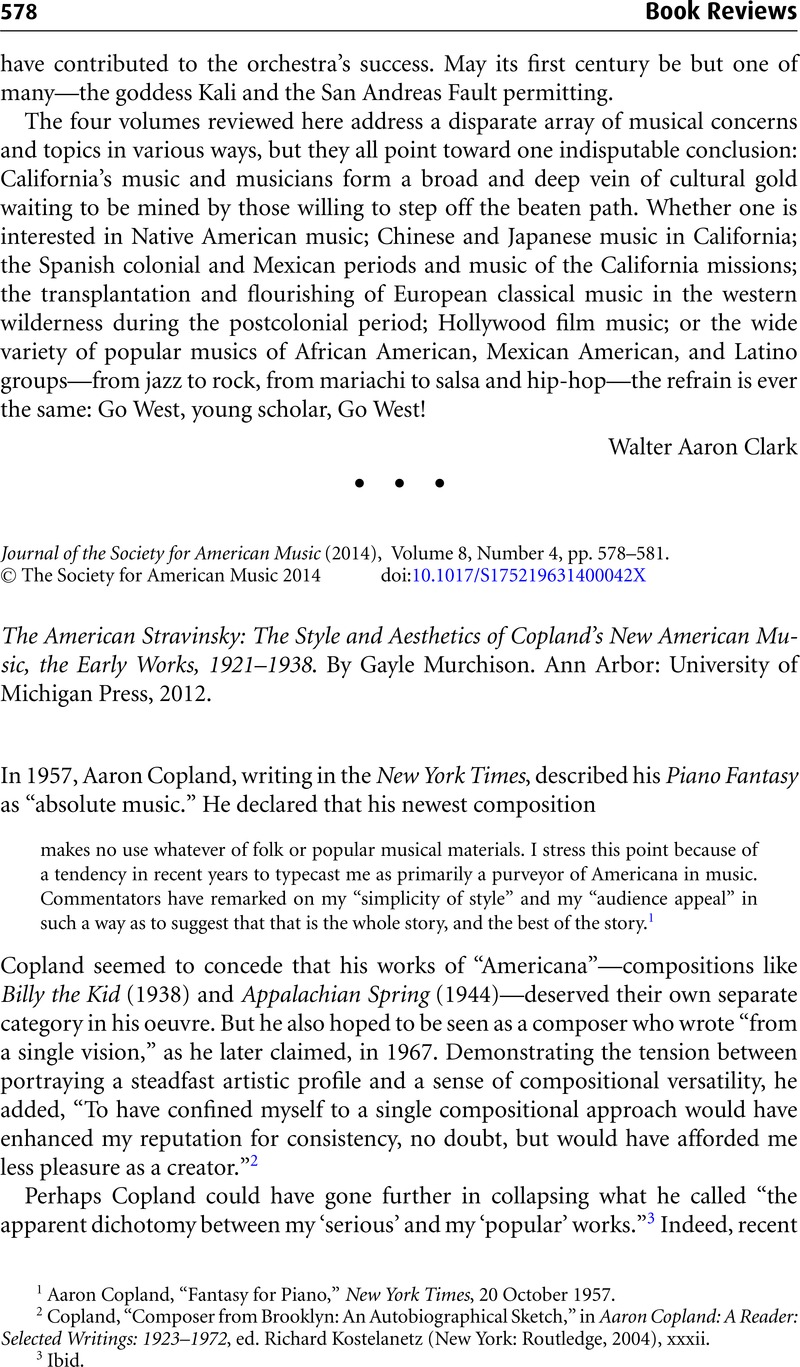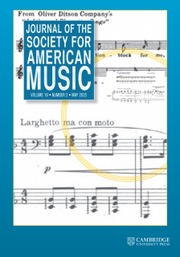No CrossRef data available.
Article contents
The American Stravinsky: The Style and Aesthetics of Copland's New American Music, the Early Works, 1921–1938. By Gayle Murchison. Ann Arbor: University of Michigan Press, 2012.
Published online by Cambridge University Press: 05 December 2014
Abstract

- Type
- Book Review
- Information
- Copyright
- Copyright © The Society for American Music 2014
References
1 Aaron Copland, “Fantasy for Piano,” New York Times, 20 October 1957.
2 Copland, , “Composer from Brooklyn: An Autobiographical Sketch,” in Aaron Copland: A Reader: Selected Writings: 1923–1972, ed. Kostelanetz, Richard (New York: Routledge, 2004), xxxiiGoogle Scholar.
3 Ibid.
4 Crist, Elizabeth B., Music for the Common Man: Aaron Copland during the Depression and War (New York: Oxford University Press, 2005), 22Google Scholar.
5 Oja, Carol J., Making Music Modern: New York in the 1920s (New York: Oxford University Press, 2000), 363CrossRefGoogle Scholar.
6 Levy, Beth E., Frontier Figures: American Music and the Mythology of the American West (Berkeley: University of California Press, 2012), 311CrossRefGoogle Scholar.
7 See Starr, Larry, “The Voice of Solitary Contemplation: Copland's Music for the Theatre Viewed as a Journey of Self-Discovery,” American Music 20/3 (Autumn 2002): 297CrossRefGoogle Scholar.
8 See Pollack, Howard, Aaron Copland: The Life and Work of an Uncommon Man (Urbana: University of Illinois Press, 2000)Google Scholar; Oja, Making Music Modern; Fauser, Annegret, “Aaron Copland, Nadia Boulanger, and the Making of an American Composer,” Musical Quarterly 89 (2006): 524–54CrossRefGoogle Scholar; Bick, Sally, “In the Tradition of Dissent: Music at the New School for Social Research,” Journal of the American Musicological Society 66/1 (Spring 2013): 129–90Google Scholar; Hess, Carol, “Copland in Argentina: Pan Americanist Politics, Folklore, and the Crisis in Modern Music,” Journal of the American Musicological Society 66/1 (Spring 2013): 191–250Google Scholar; and DeLapp-Birkett, Jennifer, “Aaron Copland and the Politics of Twelve-Tone Composition in the Early Cold War United States,” Journal of Musicological Research 27/1 (2008): 31–62CrossRefGoogle Scholar.




